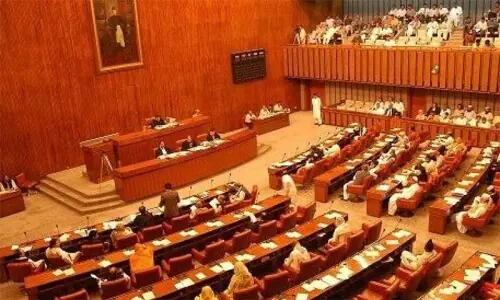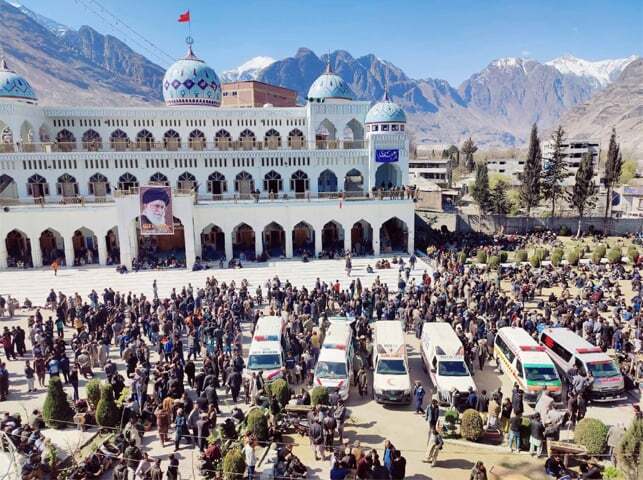PESHAWAR, Dec 12: Militants have extracted monetary benefits from the Peshawar High Court’s prolonged ban on animal export to Afghanistan, according to the Khyber Pakhtunkhwa government.
“Due to the ban on exports, militants are benefited, as the smugglers have to pay rahdari (to them) while using unfrequented routes,” says a provincial government report available with Dawn.
The information, packaged under a detailed report prepared by the livestock and dairy development department, has recently been submitted to the Peshawar High Court in line with the latter’s instructions to the provincial chief secretary to probe the reasons for the increase in prices of the cattle, poultry products and their byproducts in the province.
PHC has been maintaining a ban on export of the cattle and poultry products to Afghanistan via Khyber Pakhtunkhwa to control prices of their byproducts in the province.
The ban was imposed on July 23, 2012, after PHC Chief Justice Dost Mohammad initiated hearing into a suo moto notice of the report of the court’s Human Rights Cell on smuggling of cattle and increase in prices of beef and chickens in the province.
The report, prepared with input from representatives of traders and the government departments during a series of recently held meetings, indicates that the export ban has encouraged cattle smuggling to Afghanistan, terming it as ‘impossible to plug the long porous border between Pakistan and Afghanistan.’
“The long porous border between Pakistan and Afghanistan, security situation in some areas and the shortage of the livestock, poultry and their products, are strong factors for the smuggling of these items,” the report says, adding that the government of Khyber Pakhtunkhwa is taking certain measures to plug the menace.
The provincial government has not hesitated to hide its inability to control the smuggling as nowhere in the report it has claimed that its efforts would put an end to the illegal business. Rather, it has taken the position that its efforts would ‘at least bring the smuggling to the minimum possible level.’
Referring to the Economic Survey of Pakistan, 2011-12, the provincial government has taken the position that Pakistan has the capacity to export ‘some animals’ as it produces more animals annually than its annual meat consumption requirements.
Furthermore, it has informed the court that the ‘export of poultry and livestock is a federal subject, and there is no quota or export duty on the export of meat and poultry,’ proposing that the federal government may consider the views of the province to avert shortages and price hike while calculating the surplus cattle.
The report point outs that ‘the cost of production has become higher than the sale price, which is an indicator of surplus production,’ arguing in support of the provincial government’s recommendation for allowing the export to Afghanistan.
Furthermore, it supports the export of poultry products to the neighbouring country taking the position that the poultry sector has ‘surplus’ production capacity.
It has also proposed that the federal government may in consultation with the provincial governments consider policy options on the issue of ‘free trade of poultry products and meat’ to keep prices of poultry products and beef under check ensuring their smooth supply in local markets.
The court has been informed that the government’s policy is ‘to encourage exports and imports,’ adding that ‘various free trade agreements have been signed which allow duty free imports and exports of meat and poultry.’
The provincial government has recommended that some culled and non-productive livestock be allowed for export to Afghanistan to discourage smuggling.
In this regard, it has suggested that the Ministry of National Food Security and Research work out the export quota of livestock heads in consultation with the provincial governments.
It has assured the court that it will strictly implement its standard operational procedures to control livestock smuggling, improving them further from time to time.
In this respect, the court has been informed that the provincial secretary home and tribal affairs department ‘will ensure liaison and coordination with all the law enforcing agencies for the effective implementation of the anti-smuggling SOPs.’





























